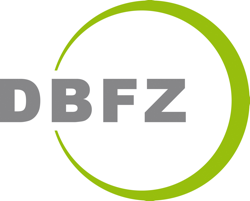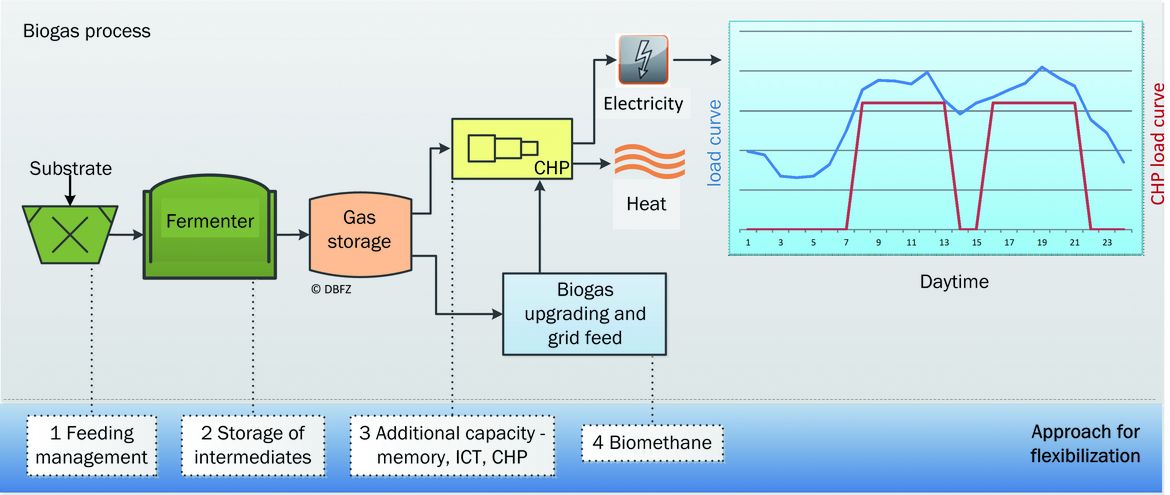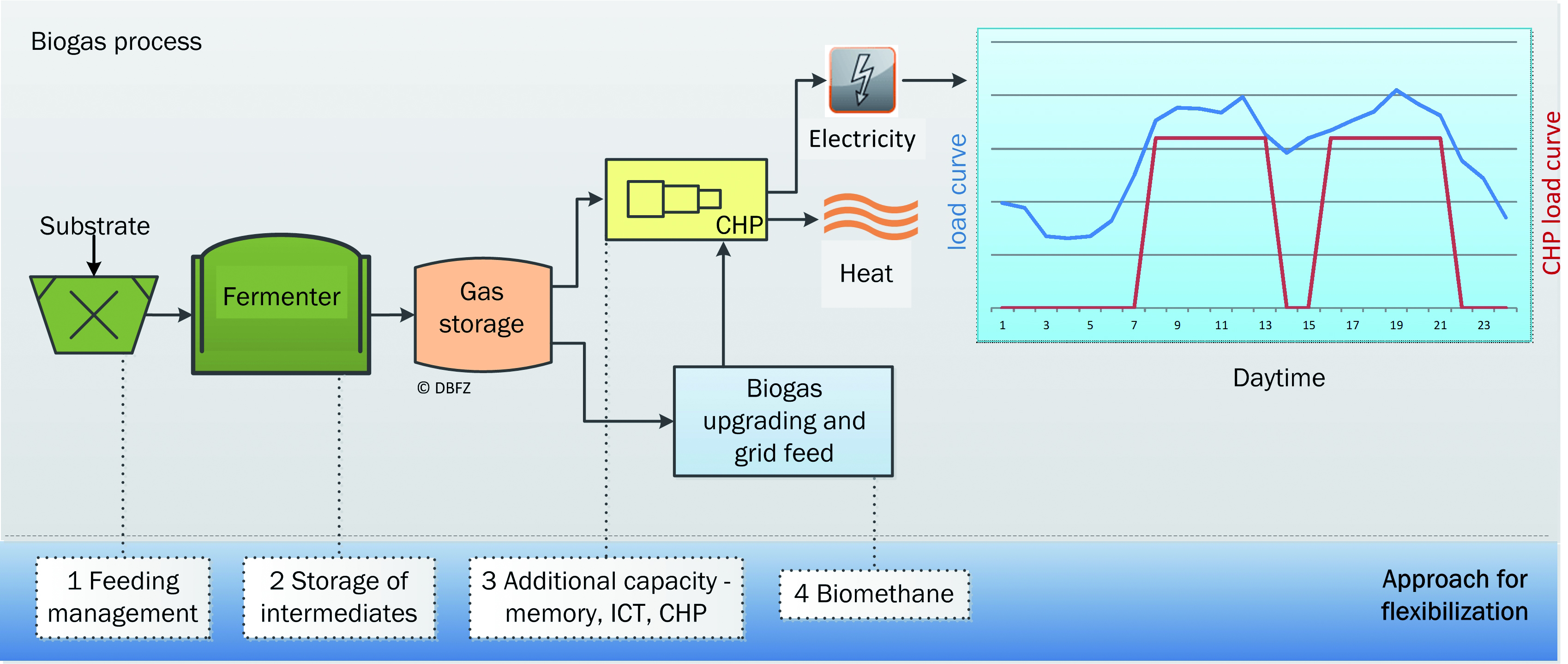Scientists from the German Biomass Research Centre (DBFZ) develop a background paper for the French market on flexibilising biogas plant operation in Germany.
In a background paper on flexibilisation in Germany, scientists from the DBFZ have provided a scientific overview of the technical approaches, the legal framework and the significance of flexibilisation for the energy system. The paper is available free of charge in German and French on the website of the German-French Office for Renewable Energies (DFBEE).
The transition away from a system of fossil fuels to one of renewable energies is crucial for sustainable development in the future. However, as the proportion of renewable energies increases, new energy sources have to be integrated into the energy system to effectively replace existing fossil energy sources. In particular, the volatile provision of electricity from wind and solar energy requires new solutions to enable a sustainable and secure supply of energy. One way to meet this challenge is to introduce flexibility into the electricity system. Incentives for flexibilising biogas plants have been in place in Germany since 2012 in the form of the "flexibility premium", part of the Renewable Energy Act (EEG). As a result, around 3,000 biogas plant operators had registered with their network operator to receive the premium in Germany by mid-2015. Flexible biogas plants operation is currently being implemented in Germany. And improved framework conditions and ambitious targets are expected to produce a dynamic development in the area of biogas in France. However, flexible biogas plant operation has yet to become a fully-fledged item on the research agenda in France and in several other EU countries. The background paper, which was recently submitted by scientists at the DBFZ, consists of four sections and gives an overview of the status quo of flexible biogas plant operation in Germany. It also relates it to the energy system, to technical flexibilisation approaches and to the legal framework.
The background paper was developed by the DBFZ for the German-French Office for Renewable Energies (DFBEE) and presents the research findings of the DBFZ. "An energy system that is increasingly based on fluctuating renewable energy will supplant conventional power plant capacities in the future. This will impact the security of supply and how electricity supply works. Where once the conventional power plant park provided the system with a secure supply of electricity, now flexible options are increasingly having to step up and secure supply," says Marcus Trommler, the lead author of the study.
Download
The background paper is available as a PDF file via the following link (german/french):
enr-ee.com/de/bioenergien/nachrichten/leser/flexibilisierung-von-biogasanlagen-in-deutschland.html
Background of the DFBEE:
The German-French Office for Renewable Energies (DFBEE) is an information and network platform for the energy transition in Germany and France. Within this context, the office organises regular events, such as conferences, seminars and webinars, at which industry decision makers and experts are able to exchange information about current issues and challenges facing renewable energies. The German Biomass Research Centre (DBFZ) has been a member of the DFBEE since April 2015 and has held various lectures in France since 2014. The aim of the DBFZ’s activities in France is to establish ties and strengthen German-French research, and to further develop research activities in Europe.
Smart Bioenergy – innovations for a sustainable future
The DBFZ works as a central and independent thinker in the field of energy and material use of biomass on the question of how the limited available biomass resources can contribute to the existing and future energy system with sustainability and high efficiency. As part of the research the DBFZ identifies, develops, accompanies, evaluates and demonstrates the most promising fields of application for bioenergy and the especially positively outstanding examples together with partners from research, industry and public. With the scientific work of the DBFZ, the knowledge of the possibilities and limitations of energy and integrated material use of renewable raw materials in a biobased economy as a whole should be expanded and the outstanding position of the industrial location Germany in this sector permanently secured – www.dbfz.de/en.


